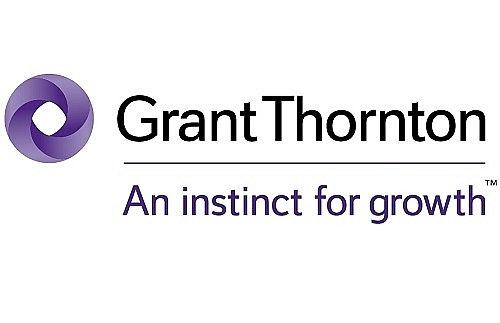Employee shares ownership plan and tax implications in Vietnam
 |
| Grant Thornton Vietnam provides insights into the tax side of ESOP |
Employee Stock Ownership Plan (ESOP)
ESOP can simply be understood as employees’ benefit plan with agreed terms and conditions. An employee stock ownership is defined as an allocation of shares that will be granted to specified employees in the future, prevalently in the form of shares options and/or shares ownership. Under such a scheme, employees typically must wait for a vesting period to elapse before they are granted an ownership or a right to exercise the option, and buy the company shares at a lower strike price than that of the prevailing market. Employee ownership can be accomplished in a variety of ways in which employees can buy shares directly, be allocated shares as a bonus, receive shares options or obtain shares through a profit sharing plan, among others. The general stages of an employee incentive plan include:
- Formulation: Employer plans and creates a strategy to compensate employees;
- Grant: Employees are granted shares option or stock ownership at a point of time, in the future subject to the conditions of the plan and associated agreements;
- Vesting: Employees are entitled to redemption rights;
- Exercise: Employees redeem their right and/or acquire shares; and
- Sale: Employees realise cash proceeds by selling their shares.
ESOP taxation
PIT on income from wages, remuneration, and income from securities transfer are two important tax liabilities under an ESOP. The specific tax treatment is stipulated under Circular No.111/2013/TT-BTC dated August 15, 2013.
Taxable income from wages and remunerations
Income from wages and remunerations include rewards in cash or in kind in any shape or form, for instance, rewards in the form of securities. Accordingly, the first taxable event would arise at the time of the allotment of shares or when the employees exercise the option. Nevertheless, employees are not required to declare and make tax payments until shares of the same type are sold or transferred. With regard to shares option schemes, the difference between the fair market value on the exercise date and the amount actually recovered by the employees would be treated as salaried income. In case of a stock ownership scheme, the total sales proceeds in monetary value would be considered as employment income. Accordingly, employers are responsible for computing the benefit under an ESOP scheme, as part of the salary income and withhold tax liabilities from employees.
One of the most noteworthy considerations in terms of employment income in Vietnam is residency status. Particularly, resident individuals are taxed on their worldwide income regardless of where the income is paid or received. Employment income is generally subject to a progressive tax rate ranging from 5 per cent to 35 per cent. Non-resident individuals on the other hand are only subject to tax on their Vietnam-sourced income, irrespective of where the income is paid and received, at a tax rate of 20 per cent.
Non-residents might be exempt from PIT liabilities under an applicable avoidance of double taxation agreement, provided that certain conditions are met. Tax treaty protection depends on the agreement between the home country and Vietnam, therefore proper tax advice in the relevant tax jurisdictions should be sought out.
Taxable income from securities transfers
The next tax that would be triggered in the event of a share transfer is income from shares or securities transfer. In this regard, the assessable income from transferring shares/securities is the price of each transfer and 0.1 per cent PIT calculated on the transfer price will be applied. Specifically, a shares/securities transfer price is determined as follows:
- The transfer price of securities of a public company traded on a stock exchange is the transaction price. The executed price is based on the sales price from the transaction at the stock exchange. The PIT liabilities will be withheld before the income is paid to the transferor.
- The transfer price of shares in cases other than the above is the price written on the transfer contract or the actual transfer price or the value stated in the accounting book of the transferor at the latest financial statement before the transfer date. The individual will be responsible for PIT declaration and payment upon processing the shares transfer.
Conclusion
An ESOP can produce greater commitment and increased productivity from employees and, in turn, greater fair market value for an enterprise, provided that employees understand how their work affects the creation of such value. An appropriate ESOP together with full investigation in tax liabilities may enhance the sustainable growth and prevent the company from unexpected tax penalty burdens in the future.
The information contained herein is of a general nature, readers should obtain advice specific to their circumstances from professional advisors. For more updates on the market, please visit: www.grantthornton.com.vn.
What the stars mean:
★ Poor ★ ★ Promising ★★★ Good ★★★★ Very good ★★★★★ Exceptional
Related Contents
Latest News
More News
- Citi economists project robust Vietnam economic growth in 2026 (February 14, 2026 | 18:00)
- Sustaining high growth must be balanced in stable manner (February 14, 2026 | 09:00)
- From 5G to 6G: how AI is shaping Vietnam’s path to digital leadership (February 13, 2026 | 10:59)
- Cooperation must align with Vietnam’s long-term ambitions (February 13, 2026 | 09:00)
- Need-to-know aspects ahead of AI law (February 13, 2026 | 08:00)
- Legalities to early operations for Vietnam’s IFC (February 11, 2026 | 12:17)
- Foreign-language trademarks gain traction in Vietnam (February 06, 2026 | 09:26)
- Offshore structuring and the Singapore holding route (February 02, 2026 | 10:39)
- Vietnam enters new development era: Russian scholar (January 25, 2026 | 10:08)
- 14th National Party Congress marks new era, expands Vietnam’s global role: Australian scholar (January 25, 2026 | 09:54)

 Tag:
Tag:



















 Mobile Version
Mobile Version